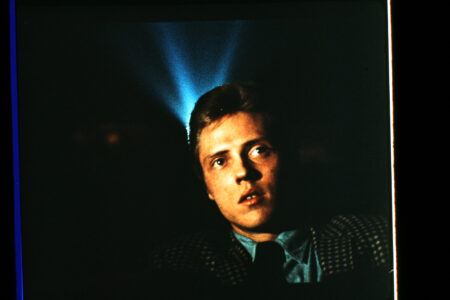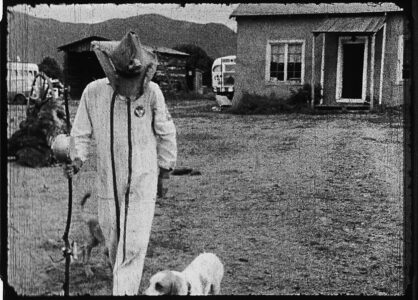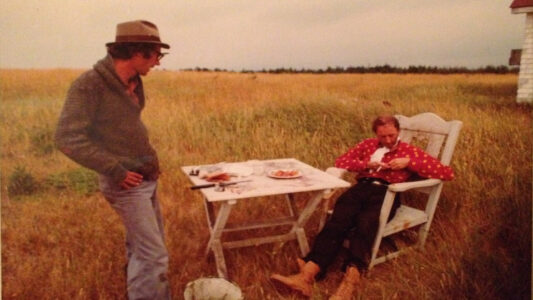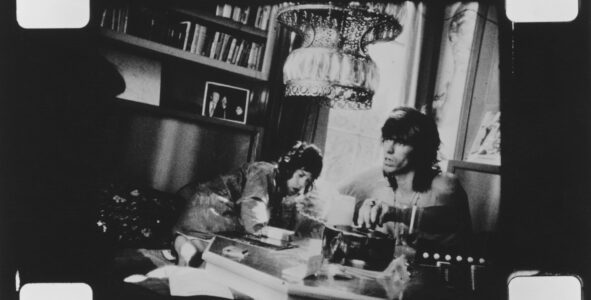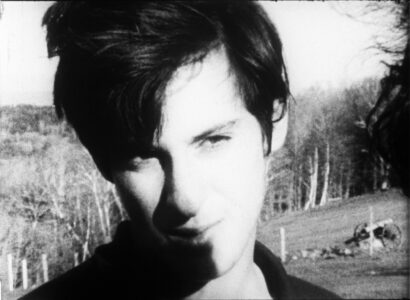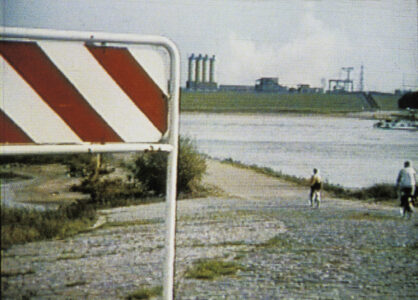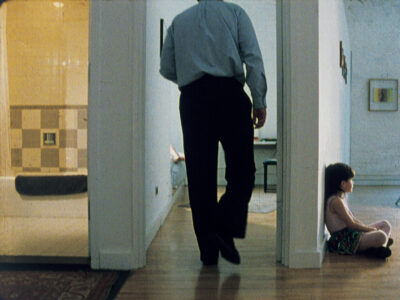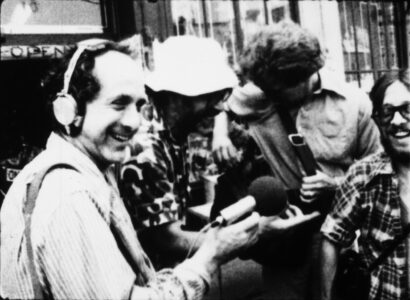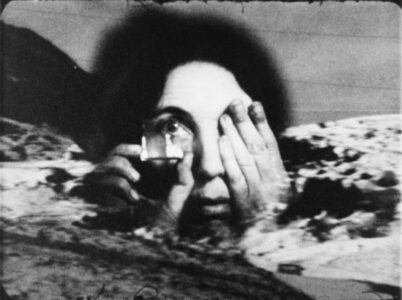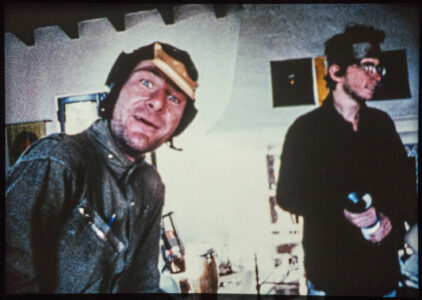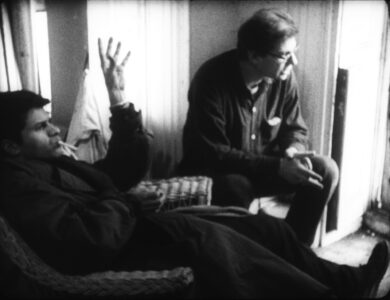Important: By downloading images you are agreeing to the following permissions: Images are provided exclusively to the press, and only for purposes of publicity of The Museum of Modern Art's and MoMA PS1's current and upcoming exhibitions, programs, and news announcements. Permission to use images is granted only to the extent of the Museum's and MoMA PS1's ownership rights relating to those images—the responsibility for any additional permissions remains solely with the party reproducing the images. The images must be accompanied by the credit line and any copyright information as it appears above, and the party reproducing the images must not distort or mutilate the images.
The Complete Robert Frank: Films and Videos, 1959–2017
November 20, 2024 – December 11, 2024
The Museum of Modern Art
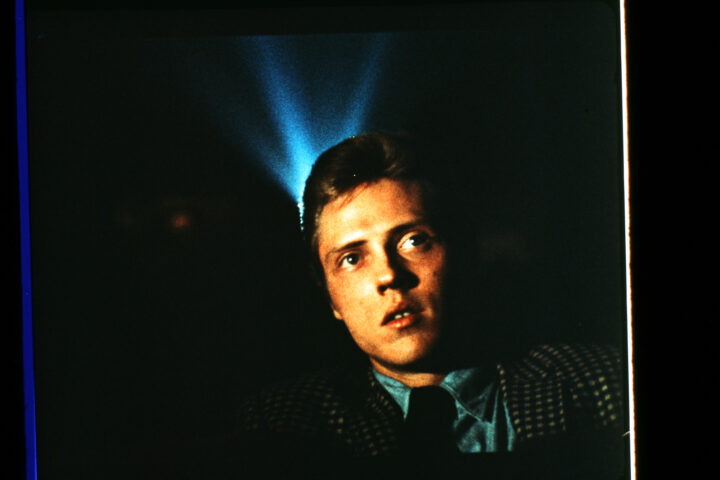
In conjunction with the gallery exhibition Life Dances On: Robert Frank in Dialogue and the installation Robert Frank’s Scrapbook Footage, MoMA presents a complete retrospective of Robert Frank’s films and videos, many of them in new digital preservations and remasters, together with a modest selection of films relating to the artist and his circle of family, friends, and collaborators. Recognizing his important relationship with MoMA, Frank donated all of his unique film and video materials to its collection in 2015. These works span the entirety of Frank’s moving-image career, from his 1959 Beat psychodrama Pull My Daisy (co-directed by Alfred Leslie and starring the poets Allen Ginsberg, Peter Orlovsky, and Gregory Corso; the artists Larry Rivers and Alice Neel; and the actress Delphine Seyrig; with narration by Jack Kerouac) to his 2008 video Fernando, a touching portrait of a Swiss artist friend, and Harry Smith at the Breslin Hotel, 1984 (2017).
Robert Frank’s films profoundly altered his approach to making images. Out of restlessness and a passion for experimental risk-taking, Frank all but abandoned photography for filmmaking in the late 1950s. When he returned to still photography in the early 1970s, his work had become less precious and singular. Instead, he subjected his still images to a variety of manipulations: scratching and painting directly on the negative or emulsion surface, and collaging and creating montages. The photographs began to resemble film sequences or storyboards: multiple frames of images with implied narratives and use of written texts as commentary. Films like Conversations in Vermont (1969) and About Me: A Musical (1971), autobiographical portraits of family life and community, were direct antecedents to deeply personal, intimate projects like his 1972 artist book The Lines of My Hand. The films’ seemingly improvisational quality also led to an interest in the immediate gratifications of Polaroids.
The series includes The Sin of Jesus, Frank’s 1961 adaptation of an Isaac Babel short story; OK End Here (1963), an intimate chamber piece featuring an original score by Ornette Coleman; and Me and My Brother (1965–68), his first feature, a faux vérité involving Allen Ginsberg, Joseph Chalkin (founder of the off-Broadway Open Theater company), Peter Orlovsky, and Orlovsky’s catatonic schizophrenic brother Julius. They are important documentary records of bohemian artist life in 1950s and ’60s New York; tender portraits of friends (Danny Seymour, the Chinese artist Sanyu, the newspaper delivery man in his rural second hometown of Mabou, Nova Scotia); painfully raw confrontations with the personal tragedies of his daughter’s accidental death and his son’s mental illness; diaristic travelogues; and thoughtful interrogations of the artist’s own divided loyalties between work and family.
Frank’s interest in the malleability of truth, in setting up conditions for improvisation within a scripted or premeditated framework, is perhaps best exemplified by his end-of-the-road movie Candy Mountain (1987), a collaboration with the novelist Rudy Wurlitzer, and his notorious Cocksucker Blues (1972). “After seeing these pictures you end up finally not knowing any more whether a jukebox is sadder than a coffin,” Jack Kerouac wrote in his introduction to Robert Frank’s landmark 1958 photographic essay The Americans. Nearly 15 years later, Frank would use Super 8 camera stills from that same journey along Route 66 for the back cover of the Rolling Stones’ Exile on Main St., while also following the band on their promotional concert tour of the album—their first cross-country trip since Altamont, with Truman Capote, Terry Southern, Andy Warhol, and Princess Lee Radziwill as hangers on. Chronicling the loneliness and weary hedonism of life on the road—Frank would later say, “This totally excludes the outside world. To never get out, to never know what city you are in…I cannot get used to it”—Cocksucker Blues was suppressed for years and seen only in bowdlerized, bootleg form. Don DeLillo, in his novel Underworld, would write of the film’s “washed blue light, a kind of crepuscular light, a tunnel light that suggested an unreliable reality.”
View up-to-date screening schedule here.
Organized by Joshua Siegel, Curator, Department of Film. Thanks to The June Leaf and Robert Frank Foundation, Peter Williamson, Laura Israel, and Nicholas Dawidoff.
![]()
Film at MoMA is made possible by CHANEL.
Additional support is provided by the Annual Film Fund. Leadership support for the Annual Film Fund is provided by Debra and Leon D. Black, with major funding from The Contemporary Arts Council of The Museum of Modern Art, The International Council of The Museum of Modern Art, Jo Carole and Ronald S. Lauder, the Association of Independent Commercial Producers (AICP), and The Young Patrons Council of The Museum of Modern Art.
Images
Me and My Brother. 1965-68. USA. Directed by Robert Frank. Courtesy The June Leaf and Robert Frank Foundation
About Me: A Musical. 1971. USA. Directed by Robert Frank. Courtesy The June Leaf and Robert Frank Foundation/The Museum of Fine Arts, Houston
It’s Real (C’est vrai). 1990. France. Directed by Robert Frank. Courtesy The June Leaf and Robert Frank Foundation/The Museum of Fine Arts, Houston
Cocksucker Blues. 1972. USA. Directed by Robert Frank. Courtesy Promotour BV/ The June Leaf and Robert Frank Foundation/The Museum of Fine Arts, Houston
Conversations in Vermont. 1971. USA. Directed by Robert Frank. Courtesy The June Leaf and Robert Frank Foundation/The Museum of Fine Arts, Houston
Hunter. 1989. West Germany. Directed by Robert Frank. Courtesy The June Leaf and Robert Frank Foundation/The Museum of Fine Arts, Houston
Last Supper. 1992. Switzerland/USA. Directed by Robert Frank. Courtesy The June Leaf and Robert Frank Foundation/The Museum of Fine Arts, Houston
Life Dances On… 1980. USA. Directed by Robert Frank. Courtesy The June Leaf and Robert Frank Foundation/The Museum of Fine Arts, Houston
Life Dances On… 1980. USA. Directed by Robert Frank. Courtesy The June Leaf and Robert Frank Foundation/The Museum of Fine Arts, Houston
Life-Raft Earth. 1969. USA. Directed by Robert Frank. Courtesy The June Leaf and Robert Frank Foundation/The Museum of Fine Arts, Houston
